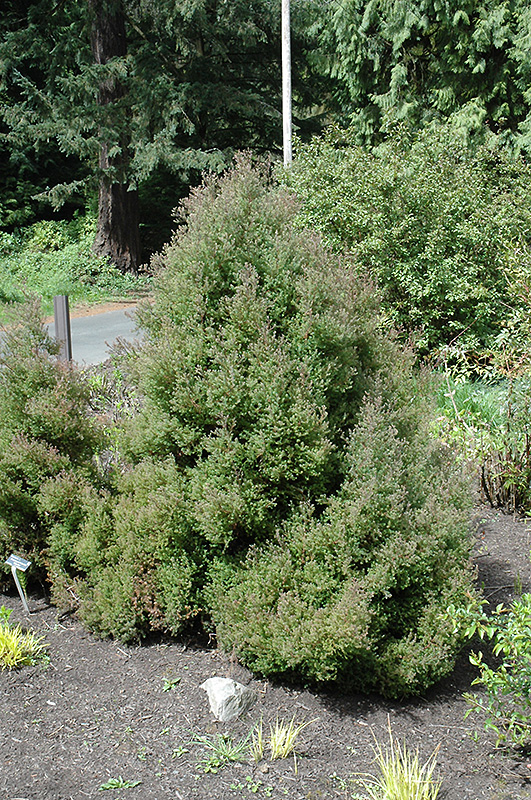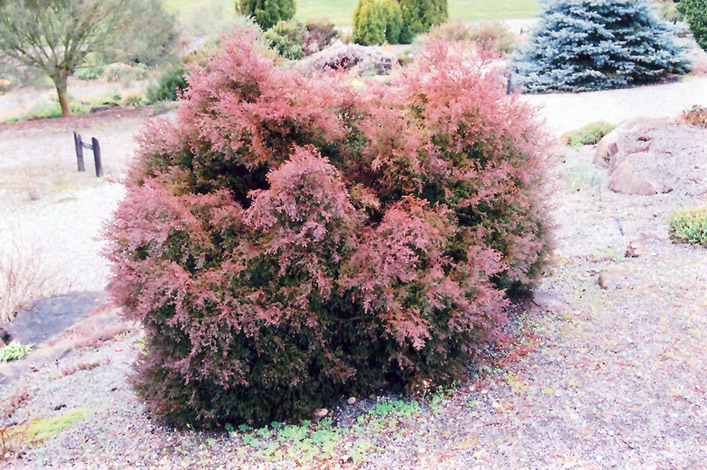Plant Finder
Ericoides Whitecedar*
Chamaecyparis thyoides 'Ericoides'
* This is a "special order" plant - contact store for details
Height: 10 feet
Spread: 7 feet
Sunlight:
![]()
Hardiness Zone: 5a
Other Names: Whitecedar Falsecypress, Atlantic White Cedar
Description:
A choice garden specimen, featuring unusual, juniper-like needles; blue needles turn an interesting reddish purple color in fall and through winter
Ornamental Features
Ericoides Whitecedar is a dwarf conifer which is primarily valued in the landscape or garden for its distinctively pyramidal habit of growth. It has attractive bluish-green evergreen foliage. The scale-like sprays of foliage are highly ornamental and turn coppery-bronze in the fall, which persists throughout the winter.
Landscape Attributes
Ericoides Whitecedar is a multi-stemmed evergreen shrub with a distinctive and refined pyramidal form. It lends an extremely fine and delicate texture to the landscape composition which can make it a great accent feature on this basis alone.
This is a relatively low maintenance shrub. When pruning is necessary, it is recommended to only trim back the new growth of the current season, other than to remove any dieback. It has no significant negative characteristics.
Ericoides Whitecedar is recommended for the following landscape applications;
- Accent
- Vertical Accent
- Mass Planting
- Hedges/Screening
- General Garden Use
Planting & Growing
Ericoides Whitecedar will grow to be about 10 feet tall at maturity, with a spread of 7 feet. It tends to fill out right to the ground and therefore doesn't necessarily require facer plants in front, and is suitable for planting under power lines. It grows at a medium rate, and under ideal conditions can be expected to live for 60 years or more.
This shrub should only be grown in full sunlight. It is quite adaptable, prefering to grow in average to wet conditions, and will even tolerate some standing water. It is particular about its soil conditions, with a strong preference for sandy, acidic soils. It is somewhat tolerant of urban pollution. Consider applying a thick mulch around the root zone in winter to protect it in exposed locations or colder microclimates. This is a selection of a native North American species.
* This is a "special order" plant - contact store for details

